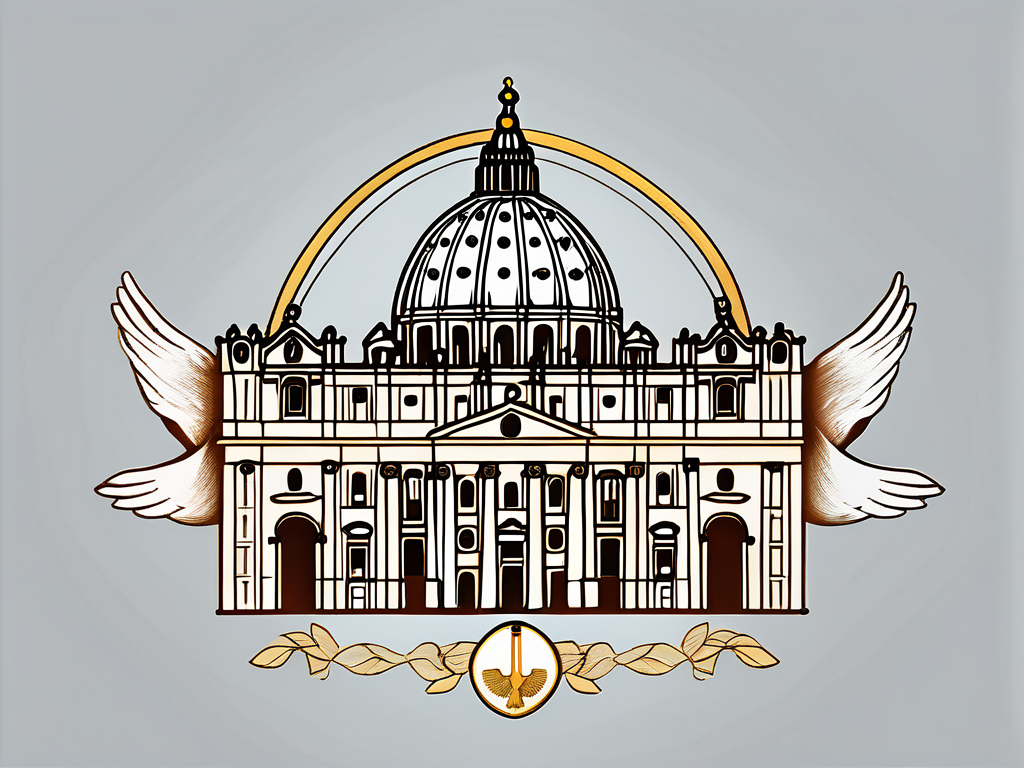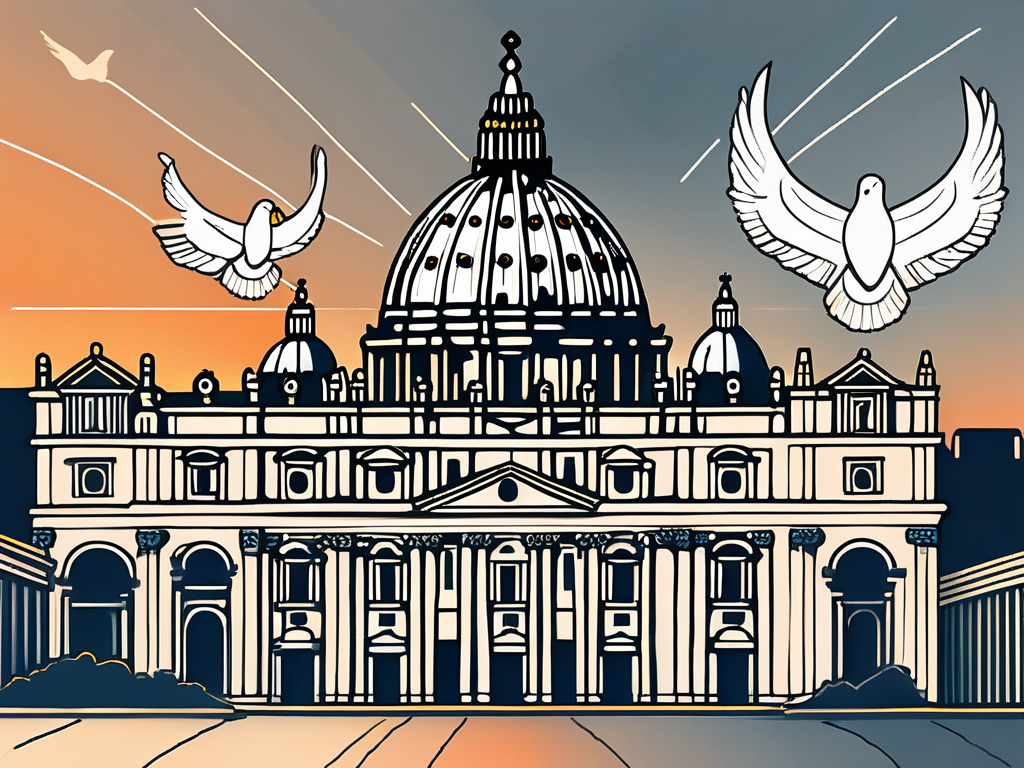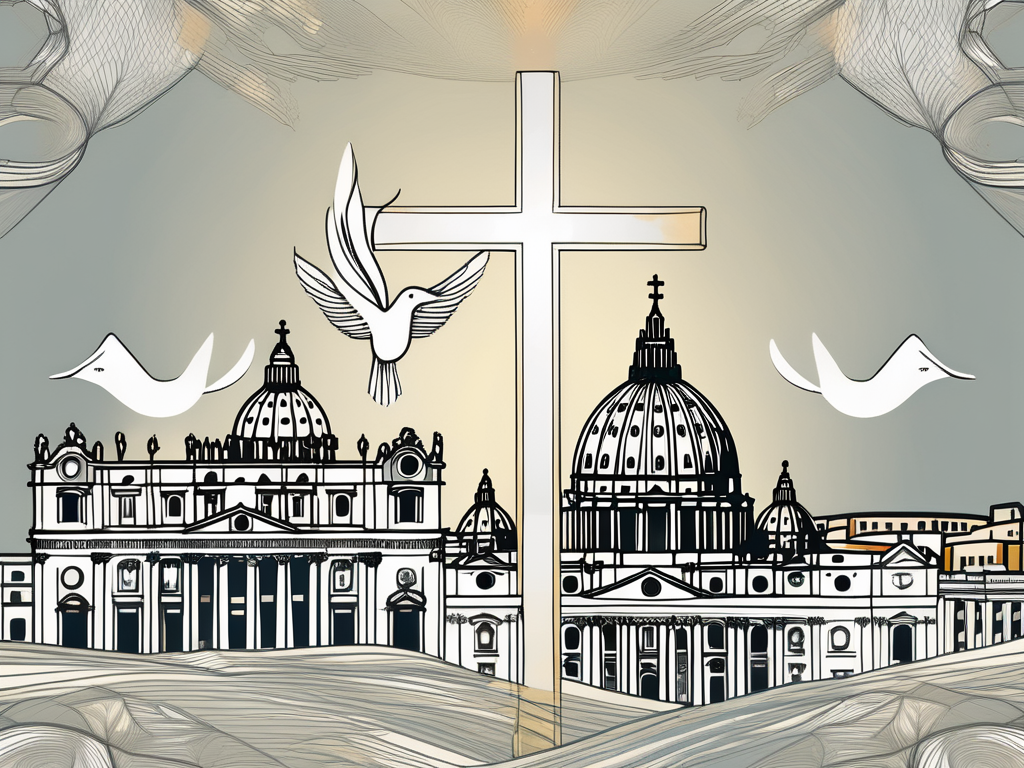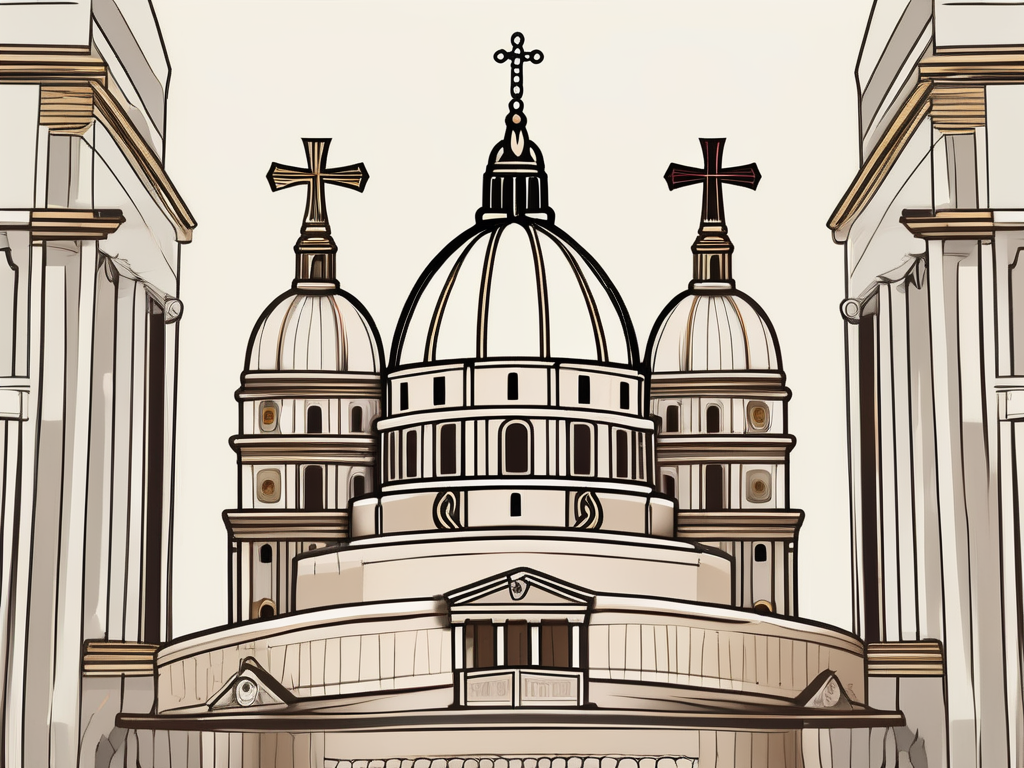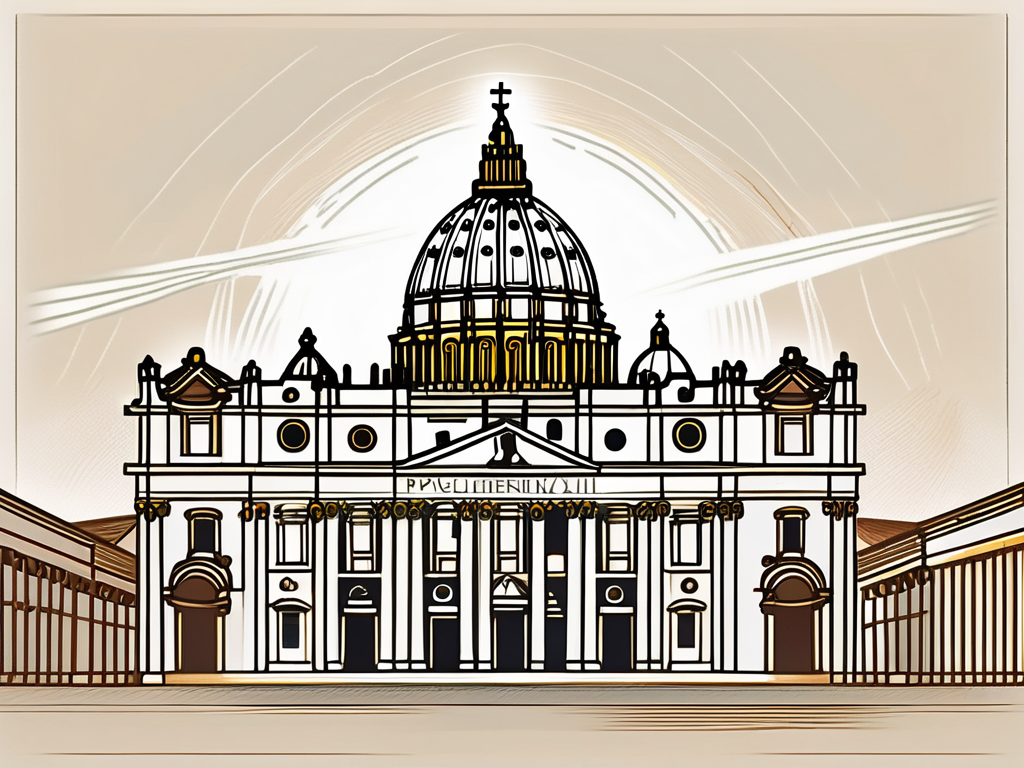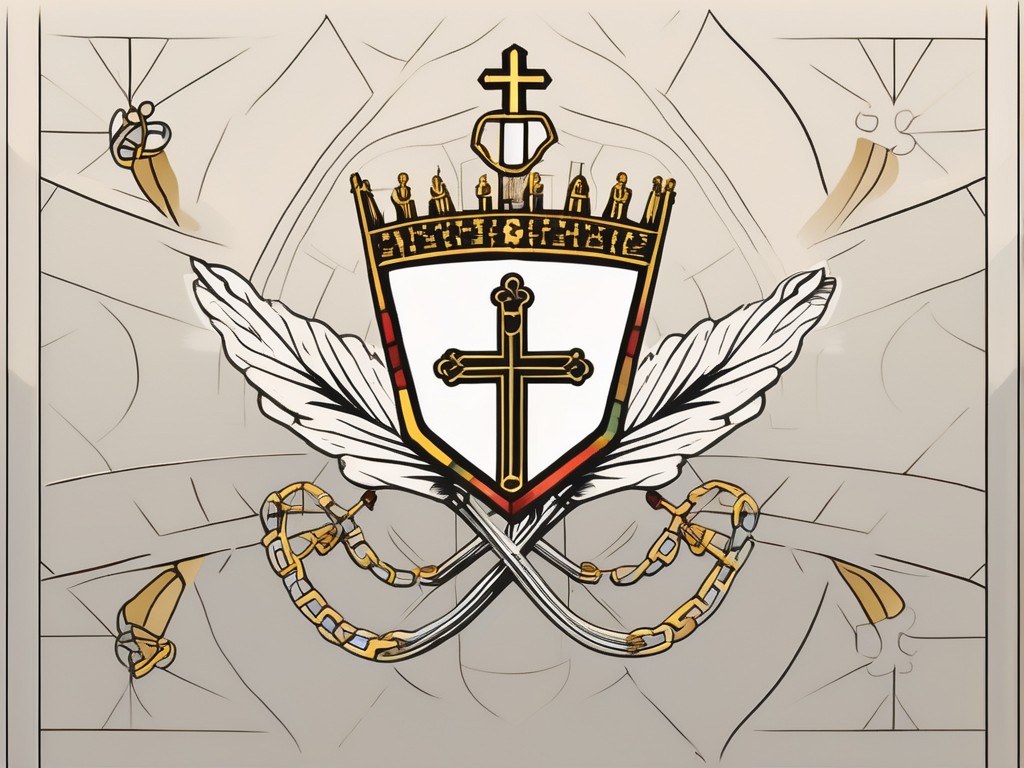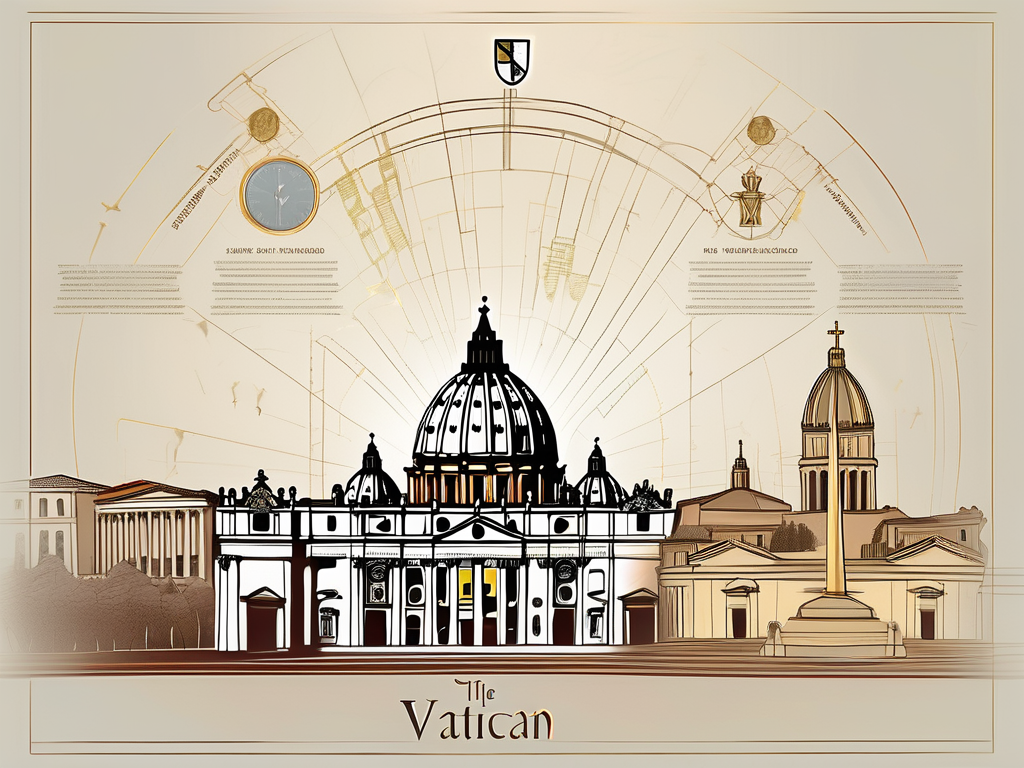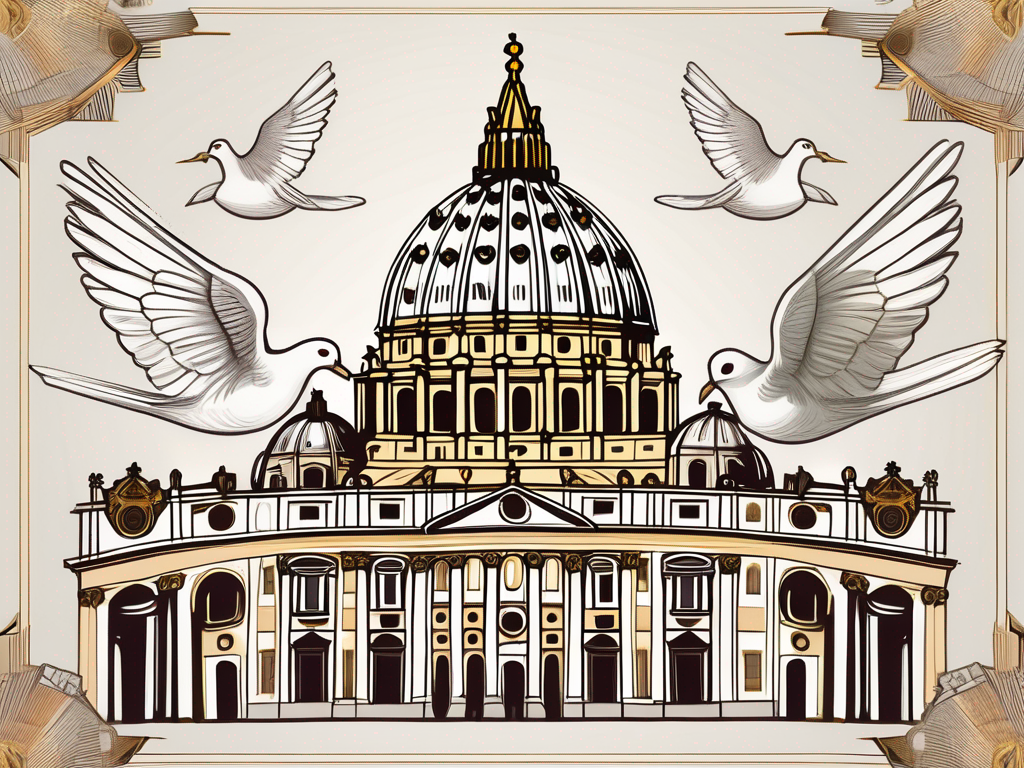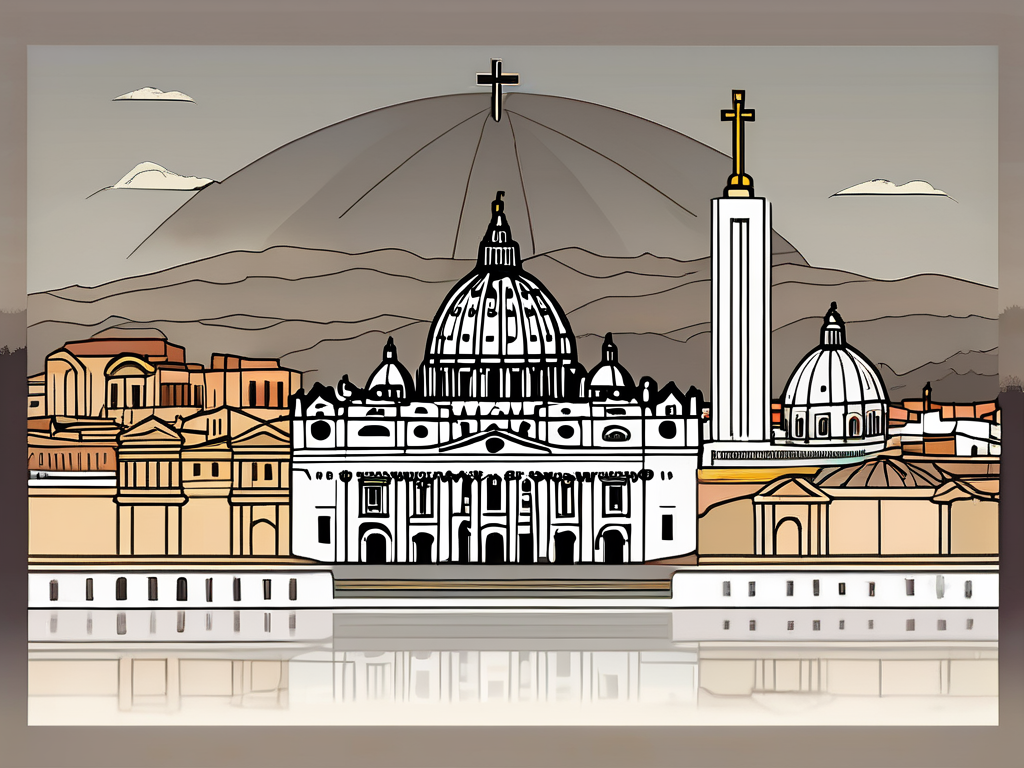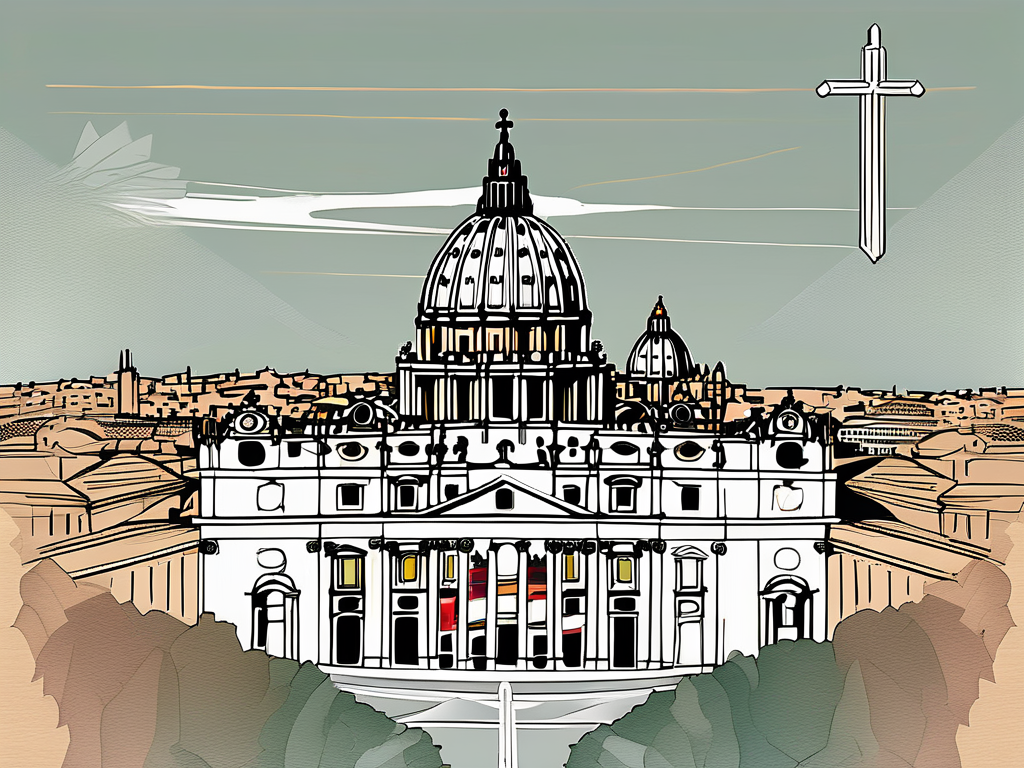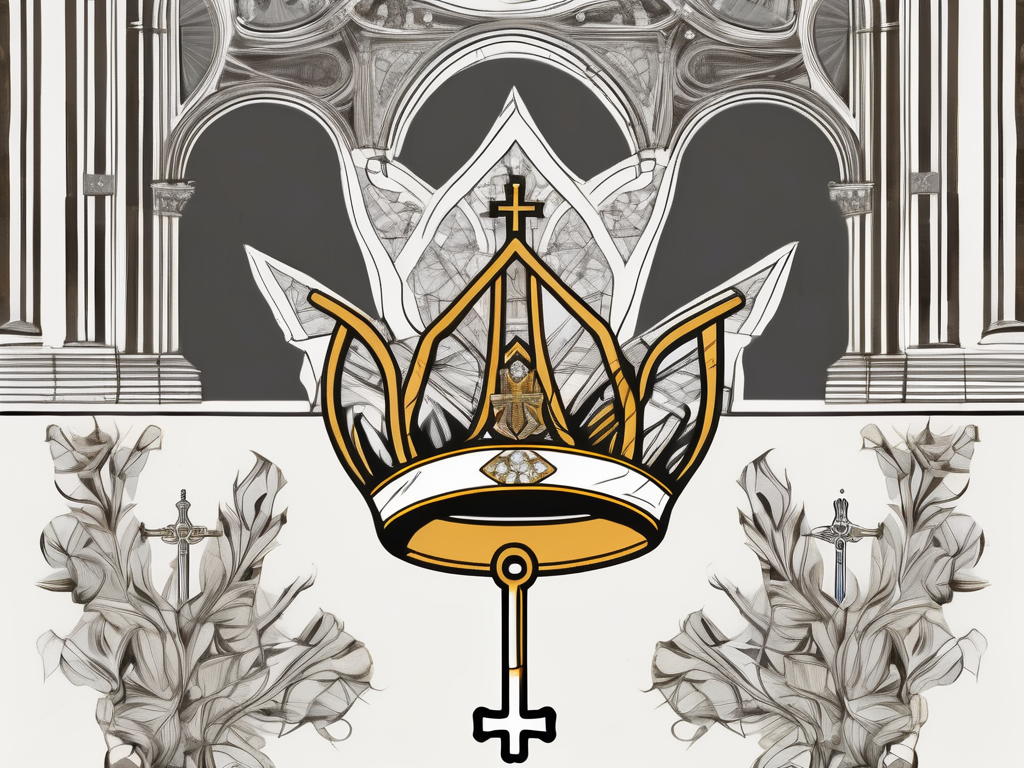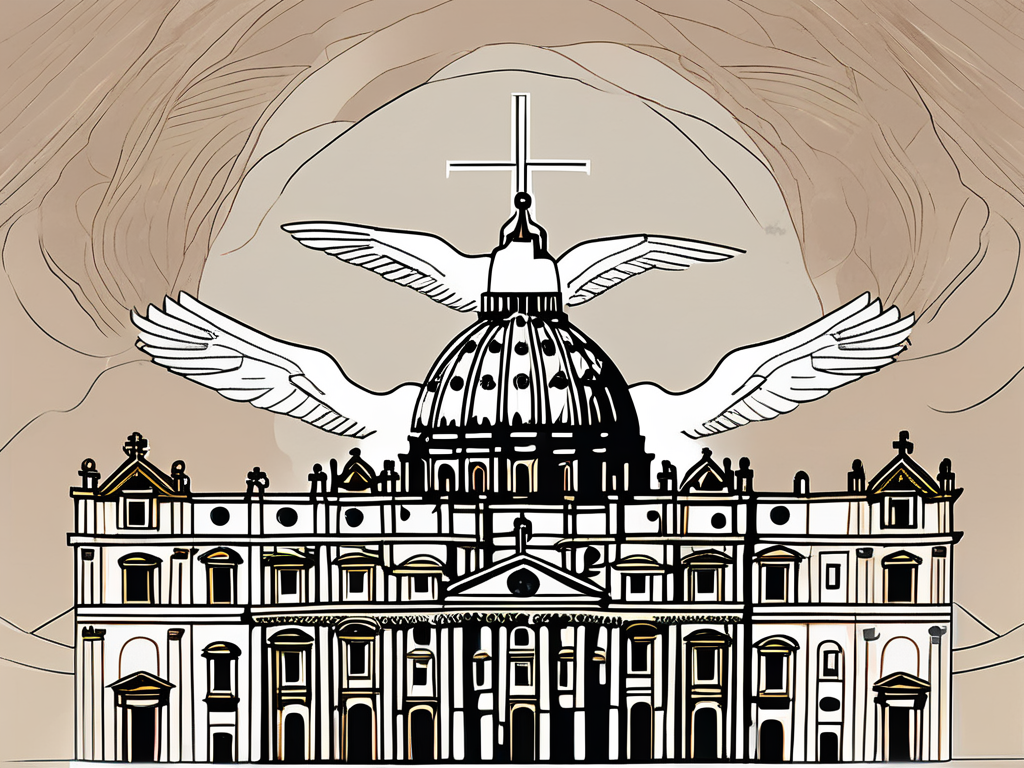Pope Benedict XIII, born with the name Pietro Francesco Orsini, is best known for his contributions and controversies during his reign as the head of the Catholic Church. His life and legacy continue to shape the Church today. Let’s dive into the various aspects of his life, from his childhood and ascension to the papacy, to his major contributions and controversies, and finally, his impact on the Catholic Church and his unexpected resignation.
Early Life and Education of Pope Benedict XIII
Pope Benedict XIII’s journey began with a humble childhood and a strong foundation in education. Born into a noble family in Gravina, Italy, young Pietro Francesco Orsini showed great promise from an early age. His family’s devotion to the Catholic faith played a significant role in his religious upbringing.
Childhood and Family Background
In the loving embrace of a devout Catholic family, Pietro Francesco Orsini’s faith blossomed. Raised with compassion and the values of the Church, he developed a strong sense of duty and commitment to the teachings of Christ. His parents, deeply rooted in their faith, instilled in him the importance of prayer, charity, and humility. As a child, Pietro would often accompany his family to Mass, where he witnessed the power of communal worship and the transformative effect it had on individuals.
Gravina, the town where Pietro grew up, was known for its rich cultural heritage and strong Catholic traditions. The streets were adorned with beautiful churches, each telling a story of faith and devotion. Pietro’s childhood was filled with visits to these sacred places, where he would marvel at the intricate artwork, listen to the enchanting hymns, and absorb the profound sermons delivered by the local clergy.
His family’s noble status provided Pietro with opportunities to interact with influential figures in the Church. From an early age, he was exposed to the inner workings of the Vatican and witnessed firsthand the dedication and sacrifices made by the clergy. These experiences left an indelible mark on his young mind, igniting a desire to serve God and His people.
Seminary Years and Theological Studies
Pursuing his calling, Pietro Francesco Orsini joined a seminary, where his intellectual prowess and dedication to theology set him apart. His thirst for learning and understanding the intricacies of Catholic doctrine led him to become a respected theologian, earning him recognition from his peers and superiors.
The seminary provided Pietro with a nurturing environment that fostered his intellectual growth. Surrounded by like-minded individuals, he engaged in rigorous debates and discussions, delving into the depths of theological concepts. His insatiable curiosity and sharp intellect propelled him to excel in his studies, earning him the admiration and respect of his professors.
During his time at the seminary, Pietro had the opportunity to study under renowned theologians who expanded his knowledge of the Church’s history, traditions, and teachings. He immersed himself in the works of influential theologians such as St. Thomas Aquinas, St. Augustine, and St. Bonaventure, gaining a comprehensive understanding of the theological foundations that underpin the Catholic faith.
As Pietro progressed through his studies, his passion for theology deepened, and he began to develop his own unique perspectives on various theological matters. His intellectual contributions and insightful interpretations caught the attention of his mentors, who recognized his potential to make a significant impact in the Church.
Throughout his seminary years, Pietro also dedicated himself to spiritual practices, spending countless hours in prayer and contemplation. He sought guidance from experienced spiritual directors, who helped him navigate the complexities of his vocation and deepen his relationship with God.
By the time Pietro completed his theological studies, he had not only acquired a wealth of knowledge but had also cultivated a deep spiritual connection that would guide him throughout his life. Armed with his education and unwavering faith, Pietro Francesco Orsini was ready to embark on a remarkable journey that would lead him to the highest office in the Catholic Church.
Ascension to the Papacy
After years of faithful service to the Church, Pietro Francesco Orsini’s moment arrived when he was elected as the 245th pope of the Catholic Church. His papal name, Benedict XIII, captured the essence of his reign, filled with blessings and challenges alike.
As Pope Benedict XIII ascended to the papacy, the world watched with anticipation. The conclave recognized not only his unwavering dedication to the Church but also his deep understanding of theology and his ability to lead with wisdom and compassion. With the weight of the Catholic Church on his shoulders, Pope Benedict XIII embarked on a journey that would leave an indelible mark on the history of the Church.
Election and Papal Inauguration
The papal conclave recognized the strength of Pope Benedict XIII’s conviction and appointed him as the spiritual leader of millions of Catholics worldwide. The momentous occasion of his papal inauguration marked the beginning of a chapter filled with important decisions.
The inauguration ceremony was a grand affair, attended by cardinals, bishops, and dignitaries from around the world. The Sistine Chapel, adorned with magnificent frescoes, served as the backdrop for this historic event. As the newly elected pope, Benedict XIII stood before the assembled crowd, his voice filled with humility and determination. He pledged to serve as a shepherd to his flock, guiding them through the challenges of the modern world while staying true to the teachings of the Church.
Key Decisions and Actions in the Early Papacy
Pope Benedict XIII wasted no time in making his mark on the Church. His early papacy brought with it a series of crucial decisions that would shape the course of Catholic history. His commitment to upholding tradition while embracing progress became a cornerstone of his reputation.
One of the first key decisions Pope Benedict XIII made was to address the issue of poverty and inequality within the Church. He established programs to provide aid to the less fortunate, emphasizing the importance of compassion and solidarity. His efforts to alleviate suffering and promote social justice resonated with Catholics worldwide, earning him admiration and respect.
In addition to his focus on social issues, Pope Benedict XIII also prioritized the preservation of Catholic traditions. He emphasized the importance of liturgical practices and encouraged the faithful to deepen their spiritual lives through prayer and sacraments. His dedication to the rich heritage of the Church inspired many to recommit themselves to their faith.
Furthermore, Pope Benedict XIII recognized the need for dialogue and unity among different religious communities. He engaged in interfaith discussions, fostering understanding and cooperation between Catholics and other Christian denominations, as well as with followers of different faiths. His efforts to promote harmony and mutual respect laid the groundwork for future ecumenical endeavors.
Throughout his early papacy, Pope Benedict XIII faced numerous challenges, both within the Church and in the wider world. However, his unwavering faith, coupled with his compassionate leadership, allowed him to navigate these obstacles with grace and determination. His commitment to the well-being of the Church and its followers endeared him to Catholics worldwide, making him a beloved figure in the history of the papacy.
Major Contributions and Controversies
Pope Benedict XIII’s papacy was marked by significant contributions and controversies that sparked debates and conversations within the Catholic community. His theological teachings, encyclicals, and controversial decisions showcased his complex nature as a religious leader.
Theological Contributions and Encyclicals
Pope Benedict XIII’s theological contributions invigorated the Catholic Church during a critical period. Through his encyclicals and writings, he addressed issues of faith, morality, and social justice, providing guidance and inspiring believers around the world.
Controversial Decisions and Their Impact
However, it is important to acknowledge that some of Pope Benedict XIII’s decisions faced criticism and controversy. These controversies, while challenging, served as catalysts for discussions and a reevaluation of longstanding beliefs. Ultimately, his legacy is shaped by both his positive contributions and the debates they sparked.
Pope Benedict XIII’s Influence on the Catholic Church
Pope Benedict XIII’s impact on the Catholic Church extended far beyond his theological teachings and controversies. His tenure brought forth changes in Church policies and practices, fostering a lasting legacy that continues to shape the institution.
Changes in Church Policies and Practices
During his papacy, Pope Benedict XIII implemented reforms aimed at strengthening the Church’s internal structures and addressing societal challenges. His emphasis on the clergy’s role in pastoral care and his efforts to eradicate corruption within the Church resonated with believers and prompted a renewed sense of purpose.
Influence on Global Catholicism
Even beyond the confines of the Vatican, Pope Benedict XIII’s influence on global Catholicism was profound. His teachings and actions served as beacons of hope and inspiration for people of faith worldwide. His words traveled continents, touching hearts and lives, reaffirming the unity of the Catholic Church.
The Resignation of Pope Benedict XIII
In a surprising turn of events, Pope Benedict XIII made the difficult decision to resign from his papal duties—a decision that had not been made in centuries. This resignation sent shockwaves throughout the Catholic Church and the world, leaving a lasting impact on the papacy and his successor.
Reasons and Reactions to the Resignation
Pope Benedict XIII’s decision to step down was driven by his acknowledgment of the physical and mental demands of the papacy. It was a courageous act that showcased his humility and prioritization of the Church’s well-being. The news of his resignation evoked mixed emotions among the faithful, ranging from surprise to admiration.
Impact on the Papacy and Succession
The resignation of Pope Benedict XIII ushered in a new era for the papacy, raising questions and discussions about the role of a retired pope. His decision paved the way for Pope Francis, who succeeded him and has since made significant contributions of his own. The impact of Pope Benedict XIII’s resignation continues to shape the Church’s understanding of the papal office.
In conclusion, the life and legacy of Pope Benedict XIII remain a testament to the complex nature of leadership in the Catholic Church. From his early life and ascension to the papacy, to his major contributions, controversies, and unexpected resignation, every aspect of his journey holds valuable lessons for both believers and non-believers. Pope Benedict XIII’s impact on the Catholic Church, both during his reign and beyond, cements his place in history as a leader whose decisions and actions continue to shape the Church’s path to this day.
